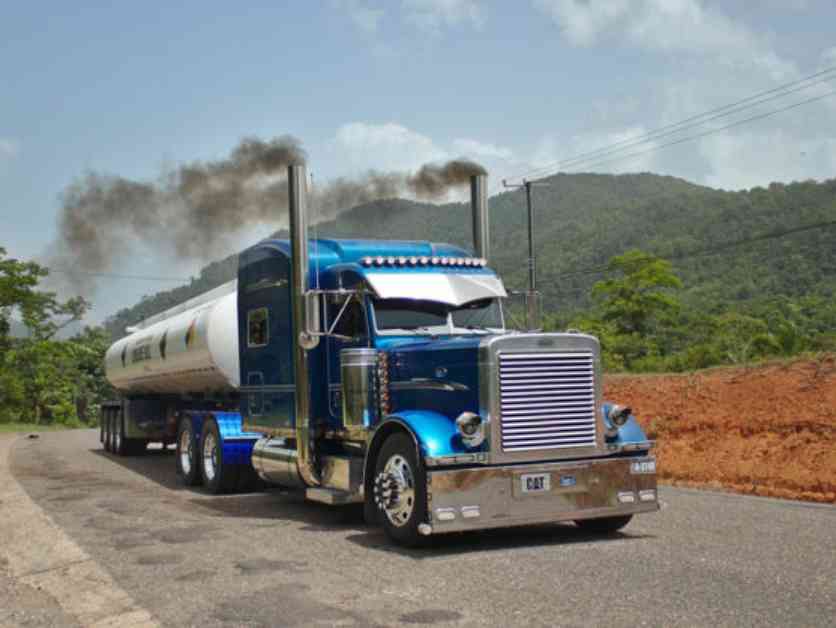The California Air Resources Board (CARB) is proposing significant changes to the state’s low carbon fuel standard, particularly regarding the cap on renewable diesel credits. The proposed revisions aim to limit the amount of renewable diesel produced from soybean or canola oil that would qualify for credits under the standard. Additionally, CARB is considering implementing sustainability criteria for feedstocks like soybeans, in an effort to ensure the environmental impact of the production process.
Proposed Changes to Renewable Diesel Credits
One of the key changes being proposed by CARB is the introduction of a cap on the amount of renewable diesel that can be credited under the low carbon fuel standard. Specifically, companies would only be eligible for credits for up to 20% of their biomass-based diesel derived from soybean or canola oil. This proposed cap has raised concerns among industry experts, with Scott Gerlt from the American Soybean Association noting that it could be quite restrictive.
During the first quarter of this year, approximately 30% of the renewable diesel that qualified for credits was sourced from soybean and canola oil. This indicates that the proposed cap could have a significant impact on the industry, potentially leading to increased credit prices and fuel costs in the state. The restriction on credit eligibility could result in a decrease in the supply of credits, leading to a rise in credit prices, according to Gerlt.
The proposed changes also include a requirement for feedstocks like soybeans to be certified as meeting sustainability criteria. This move is aimed at ensuring that the crops used in the production of renewable diesel are not grown on land that has been converted from forest or grassland. The sustainability certification requirement is set to be phased in starting in 2026 and could favor producers who source their soybeans or canola from a fixed group of farmers.
Impact on the Industry
The proposed amendments to the low carbon fuel standard come at a time when the industry is facing challenges with the collapse in prices for credits under both the California LCFS and the federal Renewable Fuel Standard. This has been compounded by the continued growth in production capacity, creating a complex landscape for biofuel producers.
Paul Winters, director of public affairs for the Clean Fuels Alliance America, raised concerns about the impact of the proposed changes on large-scale renewable diesel refineries in California. He noted that these refineries would be forced to rely on waste feedstocks, such as used cooking oil, under the CARB plan. This could put small, out-of-state producers that depend on vegetable oils at a disadvantage, according to Winters.
Furthermore, Winters highlighted that imported renewable diesel from Singapore, which is made with used cooking oil, could benefit from the low carbon fuel standard. This raises questions about the potential implications of the proposed changes on the competitiveness of domestic producers and the overall market dynamics for renewable diesel.
Sustainability Certification Requirement
The introduction of a sustainability certification requirement for feedstocks like soybeans and canola is a significant development in the proposed amendments to the low carbon fuel standard. This requirement aims to ensure that the production of renewable diesel is environmentally responsible and does not contribute to deforestation or land degradation.
According to the proposal, biofuel producers would have to attest that their feedstocks have not been sourced from lands that were converted after 2008. This is a crucial step in ensuring the integrity of the supply chain and promoting sustainable practices in the production of renewable diesel. The requirement would apply from the “point-of-origin up to the first gathering point,” with a focus on data collection and certification at the first gathering points.
The implementation of the sustainability certification requirement could have far-reaching implications for the industry, particularly in terms of compliance costs and operational challenges. Producers will need to invest in systems and processes to track and verify the sustainability of their feedstocks, which could add complexity to their operations.
Industry Response
The proposed changes to the low carbon fuel standard have sparked a mixed response from industry stakeholders, with some expressing concerns about the potential impact on their operations. Small producers that rely on vegetable oils as feedstocks may find themselves at a disadvantage under the proposed cap on renewable diesel credits.
The American Soybean Association has raised concerns about the restrictiveness of the 20% cap on credit eligibility for renewable diesel sourced from soybean or canola oil. This could have implications for the competitiveness of domestic producers and the overall market dynamics for renewable diesel in California.
On the other hand, proponents of the sustainability certification requirement argue that it is a necessary step to ensure the environmental integrity of the production process. By enforcing sustainability criteria for feedstocks like soybeans, CARB aims to promote responsible sourcing practices and reduce the environmental impact of renewable diesel production.
Overall, the proposed amendments to the low carbon fuel standard signal a significant shift in the regulatory landscape for renewable diesel producers in California. The industry will need to adapt to these changes and navigate the complexities of compliance with the new requirements to remain competitive in the market.






















